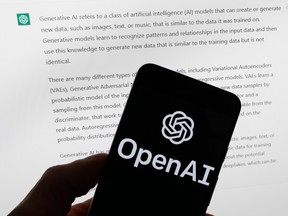The Leverage of Tech Industry Workers: A Case Study of OpenAI
Introduction
The tech industry is known for its high-stakes competition, innovative products, and rapid growth. However, beneath the surface lies a more nuanced reality – one where workers have become increasingly powerful due to their rare skills and expertise. The recent reinstatement of Sam Altman as CEO of OpenAI is a prime example of this phenomenon.
The Value of Rare Skills
Artificial intelligence (AI) engineers are among the most sought-after professionals in the industry, earning anywhere from 8% to 12.5% more than their non-AI counterparts, according to an analysis by compensation data platform Levels.fyi published in May. This disparity is a testament to the scarcity of talent in the field and the significant impact it has on companies’ operations.
The OpenAI Case
OpenAI engineers earning $800,000 a year are not an exception but rather the norm. The most common salary range for engineering jobs listed on OpenAI’s website is US$200,000 to US$370,000, though some specialized roles advertise ranges from US$300,000 to US$450,000. However, when bonuses and stock awards are included, these figures can rise to a total compensation of up to $800,000 annually.
The Power of Workers
In an industry where talent is the scarcest resource, workers like those at OpenAI have significant leverage. As Julia Pollak, chief economist at job site ZipRecruiter, explained: "For emerging technologies like AI, you only have a very small, small group of people who are experienced. They are the product, they are the company." This puts employees in an unusually powerful position to exert direct pressure on the company’s board.
The Consequences of Losing Talent
Pollak further emphasized that retaining existing talent is crucial due to the difficulty in recruiting and training new AI engineers. "You can’t easily train these people, you can’t easily recruit them from elsewhere," she said. "Retaining the ones you’ve got is the most important strategy." This highlights the potential consequences of losing top talent – catastrophic losses that could hinder a company’s ability to innovate and compete.
Recruiting from Universities
While some may suggest that companies like OpenAI can simply recruit fresh talent from universities, Pollak argues that this approach has its limitations. "There’s a big difference between understanding AI models on a theoretical level and having the skills and experience to actually apply them," she explained. Moreover, OpenAI’s highly specialized software systems make it difficult for external developers to adapt.
The Value of In-House Talent
As Pollak noted: "An AI engineer inside the company is worth three AI engineers from outside the company, given that dynamic." This underlines the importance of retaining existing talent and highlights the significant value that in-house expertise brings to a company’s operations.
Microsoft’s Offer
Before Altman was reinstated as CEO, Microsoft Corp. offered OpenAI staff job opportunities at its new AI research lab. Given the close partnership between Microsoft and OpenAI (with Microsoft holding a 49% stake), it is clear that workers have multiple options for employment, further emphasizing their bargaining power.
Conclusion
The recent events surrounding Sam Altman’s reinstatement as CEO of OpenAI serve as a stark reminder of the influence that tech industry workers hold in today’s job market. With rare skills and expertise comes significant leverage, allowing employees to negotiate better working conditions, higher salaries, or even alternative employment opportunities. As companies continue to rely on AI engineers and other specialized professionals, it is essential for them to recognize and respect the value these workers bring to their operations.
Recommendations
- Recognize the value of in-house talent: Companies should acknowledge the significant impact that existing employees have on their operations and make efforts to retain them.
- Develop effective recruitment strategies: While recruiting fresh talent from universities is essential, companies must also invest in training and developing existing employees to ensure a steady supply of expertise.
- Foster a positive work environment: To maintain employee satisfaction and loyalty, companies should prioritize creating a positive and inclusive workplace culture that encourages collaboration and innovation.
By acknowledging the power of tech industry workers and taking steps to address their needs, companies can foster long-term success and remain competitive in an increasingly demanding market.





